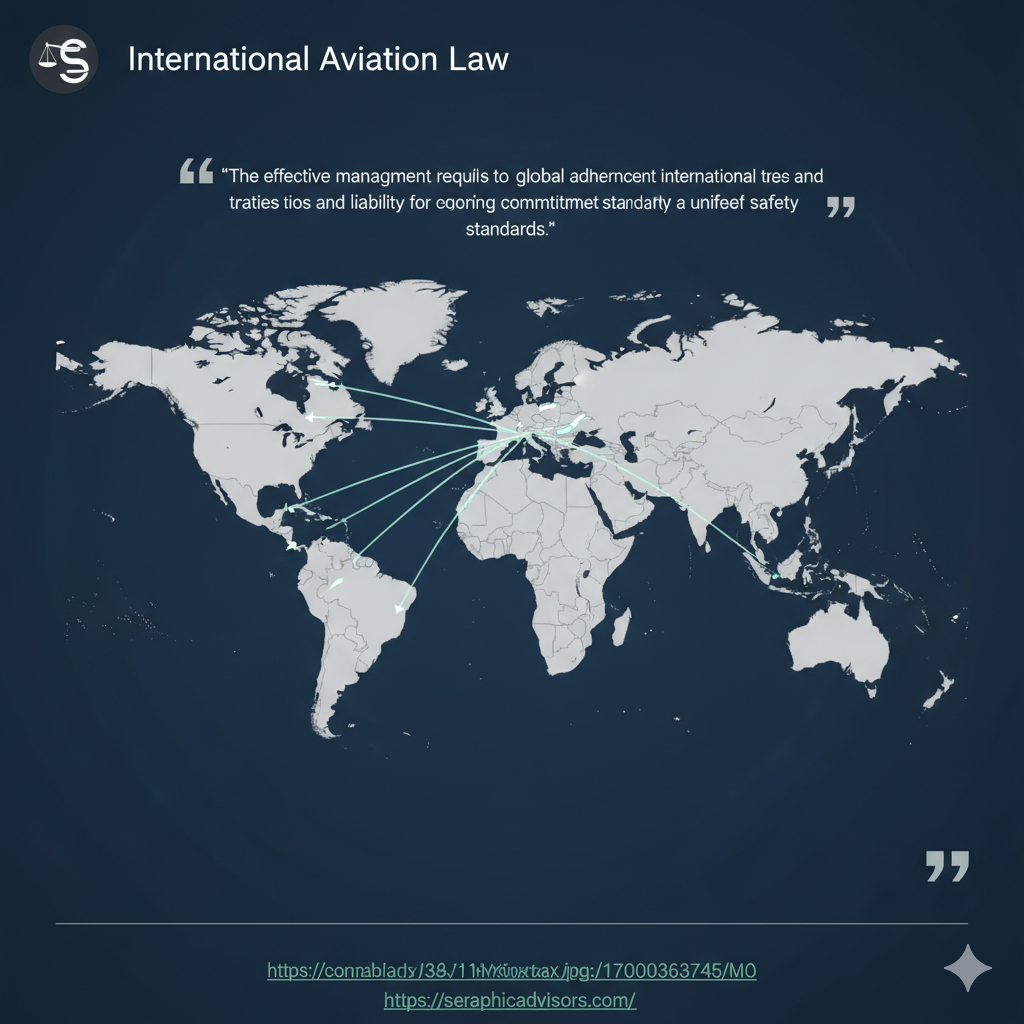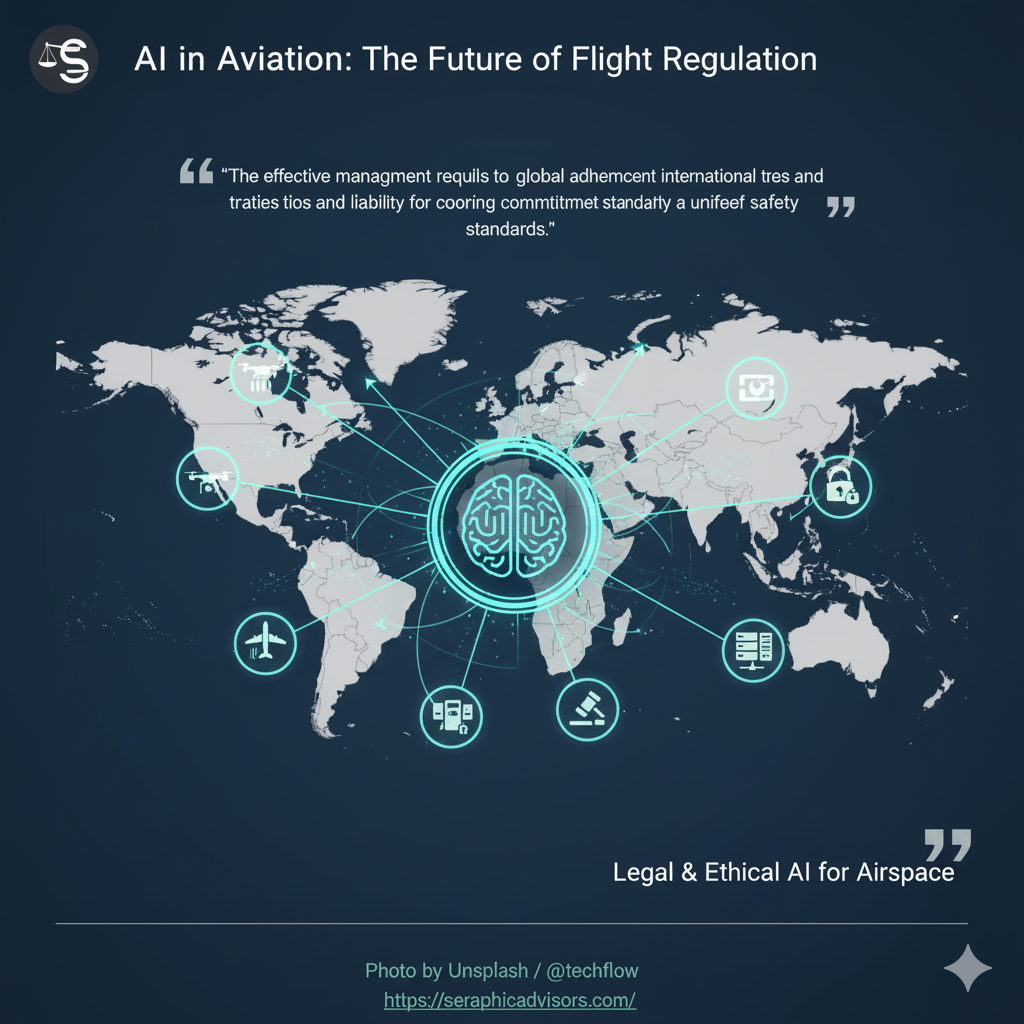International aviation law is the complex and fascinating body of rules, treaties, and agreements that ensures the safety, efficiency, and legality of global air travel. It's the framework that allows millions of people and tons of cargo to move through the skies seamlessly, transcending national borders.
For businesses operating in this high-stakes environment, specialized legal expertise is non-negotiable. To understand the depth of services available in this sector, you can explore our dedicated Aviation Law Services.

Key Pillars of Aviation Regulation
Several foundational agreements form the bedrock of international aviation law:
- The Chicago Convention (1944): This treaty established the International Civil Aviation Organization (ICAO) and the fundamental principle of sovereignty over airspace. It sets global Standards and Recommended Practices (SARPs) for safety and security. Compliance is a major focus, linking directly to global Regulatory Compliance issues.
- The Warsaw and Montreal Conventions: These conventions primarily address the liability of air carriers for passengers, baggage, and cargo during international flights. They standardize documentation and set limits on liability, creating predictable rules for airlines and travelers.
- Bilateral Air Service Agreements (BASAs): These agreements govern specific routes, capacity, and rights between two countries, allowing airlines to launch and operate specific international services.
"The effective management of global airspace requires consistent adherence to international treaties and an ongoing commitment to unified safety standards."
Navigating Complexity and Dispute Resolution
The intricate nature of cross-border operations means legal issues often arise, requiring specialized counsel in areas such as:
- Commercial Transactions: Advising on aircraft financing, leasing, and complex corporate structuring, which often involves expertise in Corporate Law Practice.
- Liability Claims: Managing and resolving large-scale claims related to accidents, delays, or cargo loss, frequently handled through alternative Dispute Resolution and Arbitration methods.
- Airline Mergers and Acquisitions: Structuring and navigating the legal complexities of consolidating airlines in different jurisdictions, a specialized area of M&A Law.
The Future: Technology and Legal Evolution
International aviation law must continually adapt to disruptive technologies. The rise of Unmanned Aerial Vehicles (UAVs) and the integration of Artificial Intelligence (AI) into air traffic management present new challenges for liability and security frameworks.
Our analysis on the changing regulatory environment, including the impact of technology, can be found in our insight, Taking Flight: The Drone Rules, which highlights how jurisdictions are responding to new forms of air transport.

For comprehensive guidance on all aspects of this dynamic field, visit our homepage at Seraphic Advisors. A full index of all our available resources and services can be found on our Sitemap.



